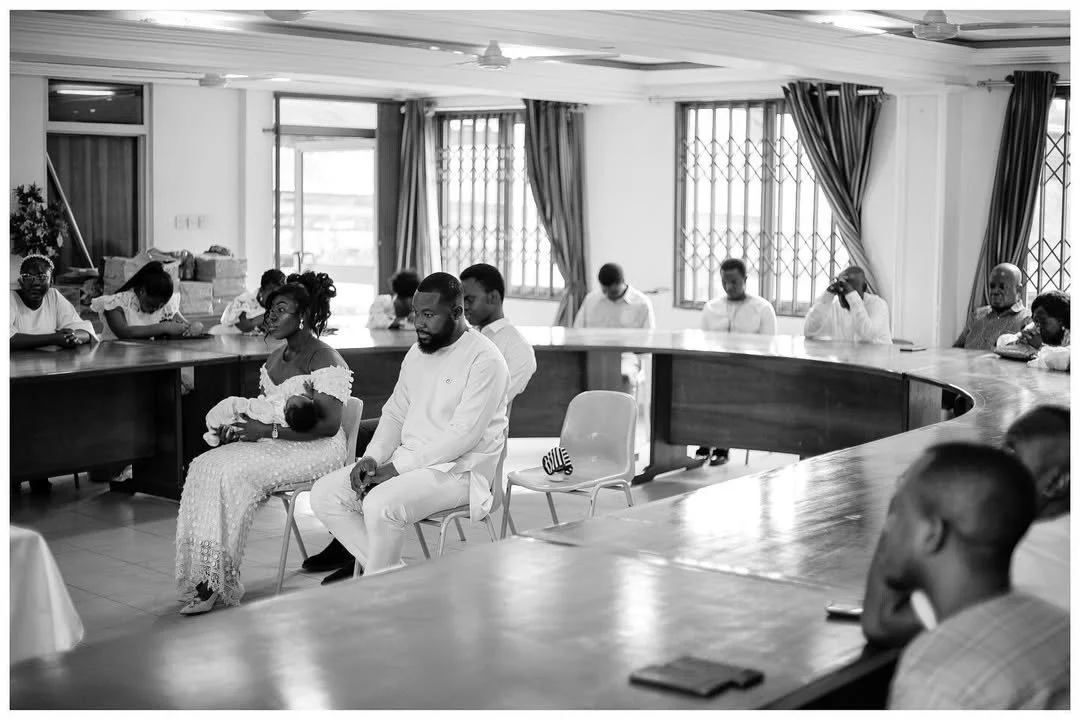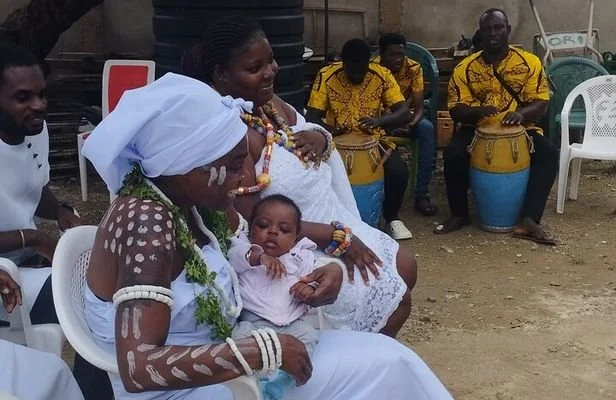From Naming Ceremonies to Outdooring: How the Akan Welcome a Child
By: Chimdindu Ken-Anaukwu
In Akan culture, the birth of a child is more than a family event, it’s a community celebration. From the very first cries to the official naming day, every step is wrapped in rituals, symbolism, and a whole lot of joy. If you thought baby showers were elaborate, wait until you see how the Akan welcome a newborn.
👶 Birth and First Days
Traditionally, Akan families wait eight days before formally naming a child. Why? The belief is that during the first week, the baby still belongs to the spirit world. Only after surviving those crucial days is the child considered fully part of the living community. Until then, the little one is lovingly cared for, but the official recognition is yet to come.
🍼 Outdooring Ceremony
After eight days, it’s time for the Outdooring Ceremony (abadinto). This is the baby’s grand debut: literally being brought outdoors for the first time. Family, friends, and neighbors gather as the child is presented to the community, signaling their transition into social life.
Highlights include:
The baby is lifted to face the rising sun, a symbol of life, continuity, and guidance.
Drops of water and alcohol are placed on the child’s tongue to teach them truth (water) and the consequences of falsehood (alcohol).
Prayers and blessings are offered, often invoking ancestors to guide and protect the newborn.
Drops of water and alcohol… to teach truth… and consequences…
Think of it as a cultural baptism with deep symbolism, minus the cake smash.
📛 Naming Ceremony
Here comes the part everyone’s been waiting for: the naming. In Akan culture, names are powerful; they tell stories of origin, spirituality, and identity.
Day names: Based on the day of the week the child was born (e.g., Kwame for Saturday-born boys, Akosua for Sunday-born girls).
Circumstantial names: Reflecting events around the birth (like twins, hardship, or joy).
Ancestral names: Passed down to honor family lineage.
Once the name is spoken, the child is no longer just “the baby.” They’re a full member of the community, with identity, destiny, and expectations.
🎶 Music, Food, and Celebration
No Akan ceremony is complete without music, drumming, and feasting. The naming day is as much a social event as it is spiritual:
Elders share wisdom and proverbs.
Drummers set the rhythm for dancing.
Guests enjoy traditional dishes (yes, there’s always jollof).
Babies may not remember it, but trust me; the photos and stories will remind them forever.
🧩 Why It Matters
The Akan child-welcoming traditions aren’t just rituals; they’re affirmations of life, continuity, and belonging. They weave the newborn into the fabric of community, linking them to ancestors, culture, and future generations.
Because in Akan culture, no one arrives alone; you come with your family, your name, and your people.
Want to learn more about Akan traditions and Twi expressions for family life? Explore interactive lessons on the NKENNE app today!
🙌 Yɛda wo ase! (We thank you!)





